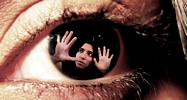The Dyadic Developmental Psychotherapy Institute (DDPI) has been formed to allow therapist to become appropriately trained and certified as practitioners and/or consultants of Dyadic Developmental Psychotherapy(DDP). The DDPI has a certification process to become a certified practitioner of DDP and to become a certified consultant of DDP.
Dyadic Developmental Psychotherapy, which is an effective and evidence-based treatment (Becker-Weidman & Hughes, 2008) has been developing for over a decade now. The purpose of the Institute and its certification program is to ensure that practitioners of the model adhere to its basic principles and to maintain integrity of the model. Dyadic Developmental Psychotherpay, Dyadic Developmental Psychotherapy Institute, Certified Dyadic Developmental Psychotherapy Psychotherapist, Certified Dyadic Developmenal Psychotherapy Consultant, Certified Dyadic Developmental Psychotherapy Trainers, DDP, DDPI, CDDPP, CDDPC, and CDDPT are all registered service marks/trademarks of the DDPI and may only be used with its permission.
Dyadic Developmental Psycotherapy has been shown to be an effective and evidence-based treatment for a variety of issues and concerns. The Institute's focus will be to maintain integrity of the model and to facillitate the ongoing development, refining, and research on this model of treatment.
DDPI will provide a certification process for those clinicians who are utilizing the DDP model of treatment and who wish to become certified in having demonstrated their knowledge of its core principles and their competence in its implementation in their practice. To be certified clinicians will have completed a minimum number of hours both in DDP course participation as well as in receiving consultation of their utilization of DDP in their treatment (through video review). Clinicians will also be certified to be DDP consultants, who are responsible for the providing consultation to those applying to become DDP certified therapists.
REFERENCES
Becker-Weidman, A. (2006a). Treatment for children with trauma-attachment disorders: Dyadic Developmental Psychotherapy. Child and Adolescent Social Work Journal, March, 2006.
Becker-Weidman, A. (2006b). Dyadic Developmental Psychotherapy: a multi-year follow-up. In New Developments in Child Abuse Research S.M. Sturt, Ed. Nova Science Publishers.
Becker-Weidman, A., (2007) “Treatment For Children with Reactive Attachment Disorder: Dyadic Developmental Psychotherapy,”
Becker-Weidman, A., & Hughes, D., (2008) “Dyadic Developmental Psychotherapy: An evidence-based treatment for children with complex trauma and disorders of attachment,” Child & Adolescent Social Work, 13, pp.329-337.
Becker-Weidman, A. & Shell, D. Eds. (2005, 2nd Printing 2008). Creating Capacity for . Oklahoma City OK: Wood ‘N’ Barnes, Williamsville, NY: Center For Family Development
Bowlby, J., (1988). A Secure Base: Parent-Child Attachment and Healthy Human Development. NY: Basic.
Holmes, J., (1993). John Bowlby Attachment Theory. London: Routledge.
Hughes, D. (1997). Facilitating Developmental Attachment: The Road to Emotional
Recovery and Behavioral Change in Foster and Adopted Children(1997).
Northvale, NJ: Jason Aronson.
Hughes, D. (1998). Building the Bonds of Attachment: Awakening Love in Deeply
Troubled Children. Northvale, NJ: Jason Aronson.
Hughes, D. (2003). Psychological Interventions for the Spectrum of Attachment
Disorders and Intrafamilial Trauma.Attachment and Human Development,5,
271-277.
Hughes, D. (2004). An Attachment-Based Treatment for Maltreated Children and Youth.
Attachment and Human Development,6, 263-278.
Hughes, D. (2006). Building the Bonds of Attachment: Awakening Love in Deeply
Troubled Children.2nd Edition.Northvale, NJ: Jason Aronson.
Hughes, D. (2007). Attachment-focused family therapy. New York: WW Norton.



